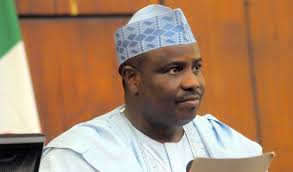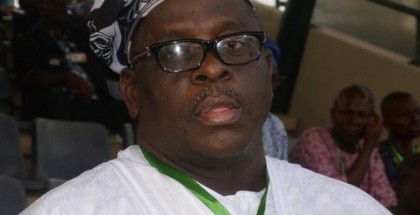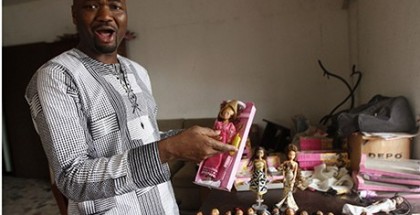Tambuwal Decries Executive Impunity, Judiciary’s Usurping Of Legislative Powers
konknaijaboy | On 06, Jun 2014
The Speaker of the House of Representatives, Hon. Aminu Tambuwal, on Thursday said the House will not be cowed or allow itself to become a rubber stamp to the Executive Arm of government.
The Speaker, who made the remark in a speech he read to mark the third anniversary of the seventh House of Representatives, blamed the nation’s slide into corruption, insecurity, disregard for the rule of law and impunity on the Executive.
Tambuwal, who said the state of the nation, “is dire and disturbing”, berated the Executive for refusing to be accountable, and highlighted instances “where obstacles were deliberately placed on the path of our progress to genuine democracy”.
“During the session under review, findings at oversight visits as well as complaints and petitions from members of the public consistently revealed the extent to which corruption has eaten into the fabric of the stewardship of public resources”, he stated.
He said the House responded by launching necessary investigations “to shine needed light into the darker recesses of public resource management in Nigeria, and where routine investigation is inadequate, we empanelled special committees to carry out a more thorough inquiry”.
The speaker, however, said the attitude of the Executive has not helped matters.
In apparent reference to President Goodluck Jonathan’s opposition to the probe of Petroleum Resources Minister, Diezani Alison-Madueke over alleged expenditure of about N10billion on the charter and maintenance of private jets and for which the embattled minister went to court to seek an injunction barring the lawmakers from investigating her, Tambuwal said:
“Strangely, the collective experience of our members in the course of the exercise of their oversight functions is that there is a growing culture of impunity on the part of public officers in Nigeria which makes them inclined to resist the ethos of accountability. Some hesitate to honour their invitation to appear before the House, while others resort to litigation in an attempt to frustrate legislative oversight of their activities”.
















